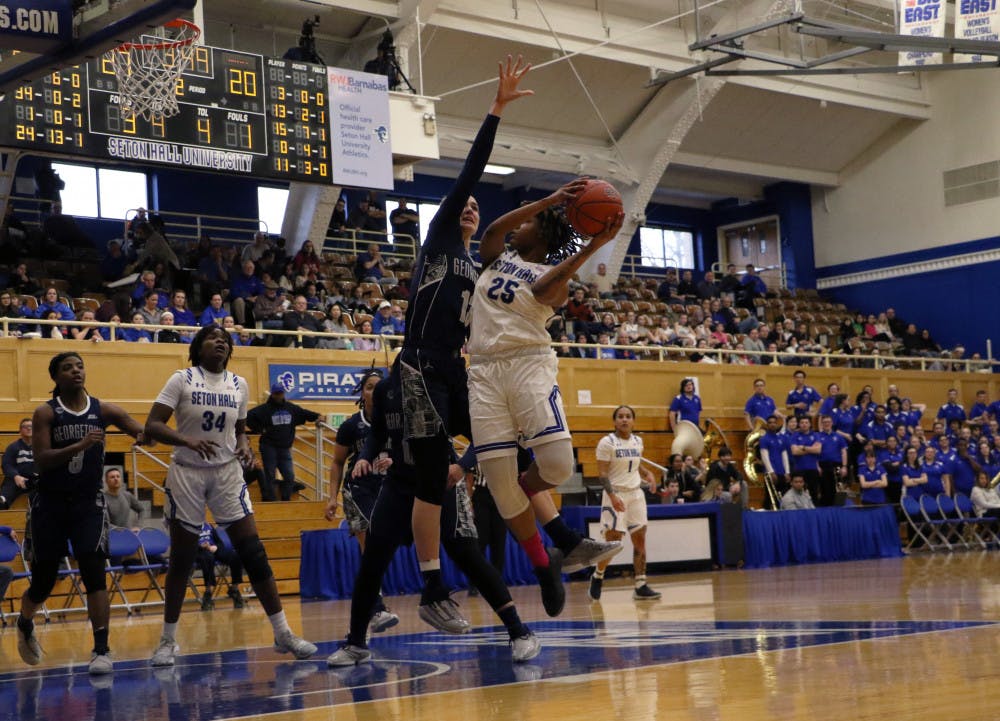Professors at Seton Hall say the age of the internet has made plagiarism much easier and created confusion among students as to what plagiarism actually is.
Anthony DePalma, a professor in the department of Communication and writer-in-residence at Seton Hall, said he was unpleasantly surprised by the amount of plagiarism he encountered when he started teaching classes at Seton Hall five semesters ago. He added plagiarism seems to stem from the amount of easily accessible information online.
"Everybody knows how to cut and paste," he said.
Mary Balkun, a professor in the English department, agreed that plagiarism has become easier over time due to the increasing levels of technology, as well as its increasing availability.
"Research has become more complex because of the abundance of sources available to students," David Beneteau, director of the Italian studies program and associate professor in the Department of Languages, Literatures and Cultures, said.
While many professors state the internet has made plagiarism easier, they say for many students, the internet also muddles the line between what plagiarism is and is not and confuses students about their professors' expectations.
"In most cases, when students plagiarize they either do it unwittingly, or they do it irrationally, in a last-minute panic," Beneteau said.
"It occurred to me in most instances the students aren't necessarily trying to fool me, rather there's a misunderstanding of what plagiarism really is," he said.
DePalma said one of the first and most blatant examples of plagiarism in his classroom came when a senior nearing graduation turned in a 1,000 word critical essay that was "transparently copied from somewhere else."
When he took out a phrase from the essay and typed it into Google, DePalma found the phrase to be copied directly from a Wikipedia article. While the entire essay was not plagiarized, DePalma said, sections of it were.
According to DePalma, when he confronted the student, the student readily admitted to copying portions of the paper from the internet. However, the student felt this was not plagiarism because he had not directly copied the entire thing.
DePalma said from that semester on, he included a section on plagiarism in his classes' syllabi and was sure to emphasize exactly what plagiarism was at the beginning of each semester.
He added he felt the University should take time near the beginning of the students' college education to teach on plagiarism and academic dishonesty because so many students seemed to have trouble understanding exactly what qualifies as plagiarism.
Beneteau, however, said he feels it is the professor's duty to inform his or her students exactly what he or she expects from them when assigning written work, especially research papers.
"Faculty has a teaching task to discuss research and research methods in class," Beneteau said.
He added that if students are unclear about how to use research materials and cite sources, they should consult their professor about his or her expectations.
Balkun said the English department has had a policy on academic dishonesty, which includes definitions of plagiarism, for at least 12 years. The policy is available on Blackboard for all English classes, she said.
Courtney Smith, associate dean of the John C. Whitehead School of Diplomacy, said he is not aware of any increase in cases of plagiarism within the diplomacy school.
"Very few cases ever formally make it to our dean's office, as our School has a faculty-led procedure through which cases of alleged plagiarism are investigated," Smith said. "This policy also specifies the range of possible sanctions that can result if a student is found to have plagiarized."
Manina Urgolo-Huckvale, associate dean for Academic Affairs in the College of Education and Human Services, said there had not been a case of plagiarism brought before the dean's office in a few years.
"Instances of plagiarism are handled directly between the professor and the student. Professors have the choice of making the student re-do the assignment or failing the student for the assignment, which will then affect the final course grade," Urgolo-Huckvale said.
Many professors choose to place a section on academic integrity, which usually includes plagiarism, in their syllabi. However, academic integrity policies sometimes differ from professor to professor and department to department.
Caitlin Carroll can be reached at caitlin.carroll@student.shu.edu.





